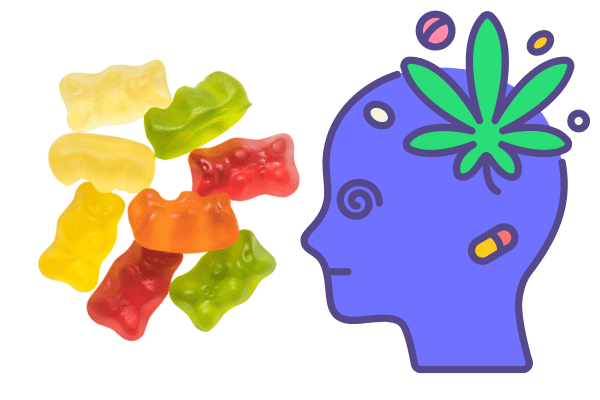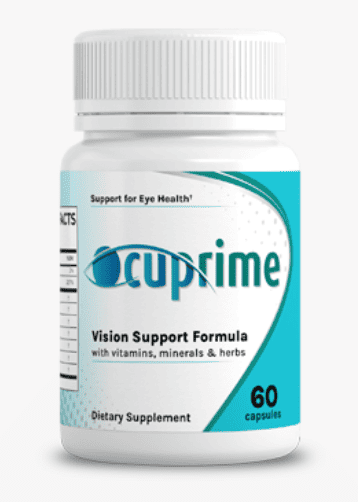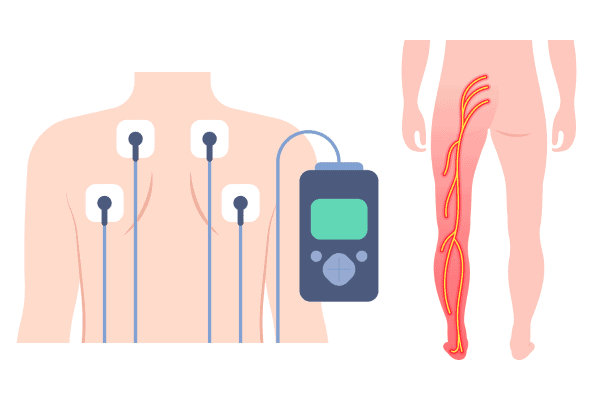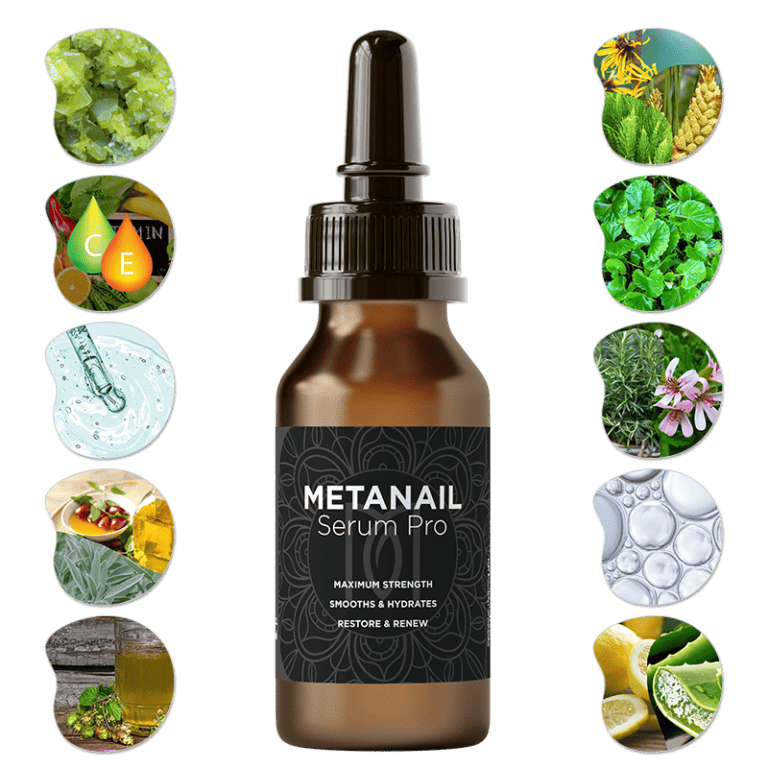Are CBD Gummies Addictive? Unveiling the Truth
Debunking the Myth: CBD Gummies and Their Addictive Potential
Are CBD gummies addictive? This question has been on many people’s minds as cannabis use and the popularity of CBD products derived from the hemp plant continue to rise. To answer this, we first need to understand CBD and THC and how they interact with our bodies about cannabis addiction.
CBD and THC are compounds found in cannabis plants, commonly known as weed. While they come from the same plant, they affect our bodies differently, especially marijuana users. CBD, short for cannabidiol, is non-intoxicating, meaning it won’t get you high like THC (tetrahydrocannabinol) does. On the other hand, THC is psychoactive and can alter your state of mind. For those looking for alternative remedies, hemp or hemp seed oil may be worth exploring.
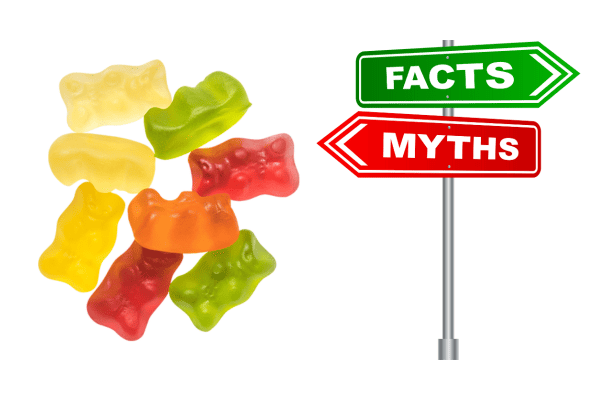
CBD and THC, the compounds found in cannabis use, interact with the body’s endocannabinoid system, a complex network of receptors that help regulate various bodily functions. However, their interactions differ significantly. CBD, derived from the hemp plant, tends to bind loosely to these receptors without causing any intoxicating effects. In contrast, THC, commonly known as weed, binds tightly, leading to its psychoactive properties. Hemp oil, containing CBD, can be used as an alternative for those seeking the benefits of cannabis without the psychoactive effects.
With the increasing availability of weed-derived CBD products, such as gummies or oils made from hemp seed oil, more people are turning to these alternatives for potential health information benefits. However, when considering their use, understanding the differences between CBD and THC is essential for managing pain and promoting wellness.
We’ll delve into terms like full spectrum or broad spectrum cannabis use. We’ll discuss some important information about the potential properties of both compounds based on research conducted by reputable organizations such as the World Health Organization.
So let’s cut to the chase and dive deeper into the world of cannabis plants and their fascinating CBD use content that affects our brain chemistry, blood pressure levels, and overall well-being. Ready? Let’s go!
Are CBD Gummies Addictive?
Addiction Potential of CBD Gummies
One common concern among people considering using CBD gummies is whether they can lead to addiction. Extensive research suggests that CBD oil itself is not addictive, making it an appealing option for those seeking potential therapeutic benefits without the risk of developing dependence. The FDA supports this information.
When discussing the addictive nature of CBD gummies, it’s essential to differentiate between addiction and dependence. Addiction refers to a psychological and physical compulsion towards a substance, while dependence implies reliance on information or experiencing withdrawal symptoms upon discontinuation. The distinction is crucial because even substances like oil with low addictive potential can still result in dependence if used regularly by people over an extended period.
Scientific Studies on CBD Gummies
To shed more light on the addictive nature of CBD gummies, let’s delve into scientific studies that have explored this topic. Research on animals and humans has consistently shown that pure CBD does not produce reinforcing effects or induce drug-seeking behavior commonly associated with addictive substances. These findings support the notion that CBD does not possess significant addiction potential.
Furthermore, a study published in the Journal of Clinical Pharmacology examined the safety and side effects of cannabidiol oil. The researchers concluded that even high doses (up to 1,500 mg per day) of CBD oil were well-tolerated by participants without any signs of withdrawal symptoms or cravings upon cessation. This reinforces the idea that consuming CBD gummies does not lead to addiction.
Differentiating Addiction from Dependence
Although pure CBD oil seems non-addictive, some oil products may contain trace amounts of tetrahydrocannabinol (THC), known for its psychoactive properties and potentially addictive effects. It’s essential to ensure that you purchase high-quality oil products from reputable sources, as these will typically have negligible THC content.
Individuals who regularly consume CBD oil gummies may experience a level of reliance on the substance. This is because CBD oil can interact with the endocannabinoid system in our bodies, which regulates various physiological processes. While dependence is not necessarily harmful, it’s advisable to consult with a healthcare professional if you plan on using CBD oil gummies over an extended period or at high doses.
The Difference Between CBD and THC
Understanding the Psychoactive Effects
CBD and THC are two compounds often associated with cannabis plants. However, one key difference between them lies in their psychoactive effects. THC, or tetrahydrocannabinol, is responsible for the “high” feeling commonly associated with marijuana use. When consumed, THC binds to cannabinoid receptors in the brain, resulting in altered perception and mood. Both CBD and THC are derived from the oil of cannabis plants.
On the other hand, consuming pure CBD oil does not produce psychoactive effects. CBD oil, or cannabidiol oil, has a different chemical structure from THC. While it also interacts with cannabinoid receptors in the body’s endocannabinoid system, it does not bind as strongly to these receptors as THC does. This means CBD oil does not have the same mind-altering properties as its counterpart.
Legal Status and Varying Effects
Another important distinction between CBD oil and THC oil is their legal status. Due to its psychoactive nature, THC oil is classified as a controlled substance in many countries and states. Its possession and use may be subject to strict regulations or even prohibition.
In contrast, CBD derived from hemp plants with low THC content is often legal in many jurisdictions. CBD products typically contain only trace amounts of THC (less than 0.3%), insufficient to induce intoxication or cause addiction. It’s important to note that laws regarding CBD can vary widely depending on where you live, so it’s essential to familiarize yourself with local regulations before purchasing or using any products.
Debunking Misconceptions About Addiction Potential
Understanding the differences between CBD and THC helps clarify misconceptions about the addictive potential of oil. While some individuals may be concerned about whether CBD gummies can be addictive like traditional cannabis products containing high levels of THC, there is no evidence to suggest that pure CBD oil has addictive properties.
Oil addiction typically arises when substances like THC interact with reward pathways in the brain, leading to compulsive drug-seeking behavior. THC oil has been shown to have addictive potential due to its ability to activate these reward pathways. However, CBD oil does not produce the same effects and is not considered addictive.
It’s important to note that addiction is a complex issue involving various factors, including individual susceptibility and use patterns. While CBD oil is not considered addictive, using any substance responsibly and in moderation, such as oil, is always advisable.
Exploring the Addictive Potential of CBD Gummies
One question often arises is whether CBD oil products like gummies are addictive. While research into the addictive potential of specific forms of cannabidiol (CBD) oil products like gummies is limited, ongoing studies provide some insights into this topic. Let’s dive deeper and explore the factors that may influence addiction risk related to consuming these popular CBD oil treats.
Limited but Ongoing Research
Researchers have been studying the addictive properties of CBD oil gummies. However, it is essential to note that conclusive evidence on the addiction potential of CBD oil gummies is still lacking. Due to legal restrictions and other limitations, comprehensive studies on the addiction potential of CBD oil gummies are yet to be conducted. However, preliminary research suggests that specific individuals may develop a psychological dependence on substances containing cannabinoids, including those found in gummy form.
Factors Influencing Addiction Risk
Several factors, including personal history and substance abuse, can contribute to the risk of developing an addiction to oil. Those with a history of addictive behavior may be more prone to forming dependencies on various substances, including CBD products.
Dosage and frequency of use also play a crucial role in addiction potential. Consuming excessive amounts or using CBD gummies frequently may increase the likelihood of developing a dependence. Users must follow recommended dosage guidelines from reputable manufacturers and consult with healthcare professionals if necessary.
Individual susceptibility varies from person to person. Some individuals may be more vulnerable due to genetic predispositions or unique brain chemistry. These factors can impact how an individual responds to the psychoactive properties present in CBD gummies.
Understanding Psychoactive Effects
While CBD does not produce intoxicating effects like its counterpart THC (tetrahydrocannabinol), it interacts with our body’s endocannabinoid system and influences various physiological processes. This interaction can affect mood, state of mind, and overall well-being.
It is worth noting that CBD gummies contain trace amounts of THC, the psychoactive compound responsible for the “high” associated with marijuana. However, these levels are typically within legal limits (0.3% or lower) and are unlikely to produce significant psychoactive effects. Nevertheless, individual responses may vary, and one must know one’s tolerance and sensitivity.
The Importance of Further Studies
To gain a comprehensive understanding of the addiction potential of CBD gummies, further research is necessary. Scientists must conduct rigorous studies considering various factors such as dosage, frequency of use, individual susceptibility, and long-term effects on mental health.
These studies should also focus on analyzing the specific chemical composition of CBD gummies, including other ingredients present in these products. Understanding how each component interacts with our body can provide valuable insights into its addictive properties.
Addressing Concerns: CBD Addiction Potential
Misconceptions surrounding cannabis-related products, such as gummies containing cannabidiol (CBD), often lead to concerns about addiction potential. However, it is crucial to differentiate between addiction and dependence when discussing CBD gummies.
Debunking Misconceptions
Addiction to CBD oil involves compulsive drug-seeking behavior, where individuals experience cravings and continue using the substance despite adverse consequences. On the other hand, dependence on CBD oil refers to the body’s reliance on it to function correctly. While these terms are sometimes used interchangeably, they have distinct meanings.

Current evidence suggests that CBD itself is not addictive. Unlike tetrahydrocannabinol (THC), the psychoactive compound in cannabis that produces a “high” CBD does not have the same addictive properties. Studies indicate that pure CBD does not stimulate the brain’s reward system in the same way as addictive substances do.
Individual Responses May Vary
While CBD may not be inherently addictive, individual responses can vary. Personal susceptibility and previous substance abuse history can influence how someone interacts with a substance. Therefore, it is essential to consider these factors when evaluating potential addiction risks associated with CBD gummies.
It is worth noting that even non-addictive substances like CBD oil and CBD hemp oil can sometimes lead to psychological or physical dependence. However, this should not be confused with addiction itself. Dependence on CBD oil occurs when the body becomes accustomed to the substance and experiences withdrawal symptoms upon discontinuation. These symptoms can include irritability, insomnia, anxiety, or mild discomfort but are generally manageable and short-lived.
Seeking Professional Guidance
Consulting with healthcare professionals is highly recommended to effectively address concerns about addiction potential related to CBD gummies. They can provide personalized guidance based on an individual’s circumstances and medical history.
Healthcare professionals have expertise in understanding addiction mechanisms and can help assess the potential risks of using CBD oil. They can evaluate an individual’s susceptibility to addiction, considering their unique characteristics and medical background. This personalized approach ensures that concerns related to CBD oil are addressed appropriately and that the individual receives accurate information tailored to their needs.
By seeking professional guidance, individuals can decide whether CBD gummies suit them without succumbing to misconceptions or baseless fears.
Side Effects of CBD Gummies: Risks and Safety
Mild and Temporary Side Effects
CBD gummies are generally well-tolerated, but it’s essential to be aware of the potential side effects they may cause. Some common side effects include drowsiness, dry mouth, and changes in appetite. These effects are usually mild and temporary, but it’s essential to understand how they may impact your experience.
Drowsiness can be a result of CBD’s relaxing properties. While this can benefit those seeking better sleep or relaxation, avoiding activities requiring full alertness if you feel exhausted after consuming CBD gummies is essential.
A dry mouth is another commonly reported side effect. This occurs because CBD interacts with receptors responsible for saliva production. Staying hydrated by drinking water or chewing sugar-free gum can help alleviate this symptom.
Changes in appetite may also occur when consuming CBD gummies. While some individuals may experience an increase in need, others may notice a decrease. It’s essential to listen to your body and make dietary adjustments accordingly.
Potential Interactions with Medications
When considering CBD gummies, being mindful of potential interactions with other medications you might be taking is crucial. CBD can interact with certain enzymes in the liver that are responsible for metabolizing medications. This interaction could alter the effectiveness or potency of these drugs.
To ensure safety and minimize risks, consult a healthcare professional before incorporating CBD gummies into your routine, especially if you take prescription medications. They can guide dosage adjustments or suggest alternative options that won’t interfere with your medication regimen.
Quality Control Measures for Safety
Quality control measures are vital when purchasing CBD gummies to ensure their safety and efficacy. With the increasing popularity of CBD products, it becomes crucial to choose reputable brands that prioritize quality assurance.

Look for companies that provide third-party lab testing results to verify the purity and potency of their products. These tests can confirm that the CBD gummies contain the advertised amount of CBD and are free from harmful contaminants such as pesticides, heavy metals, or residual solvents.
Consider checking customer reviews and ratings for CBD oil to gauge a brand’s overall satisfaction and reliability. This can provide valuable insights into the experiences of other consumers and help you make an informed decision.
Mitigating Risks through Dosage and Professional Guidance
It is essential to adhere to recommended dosages to minimize any potential risks associated with CBD gummies. Start with a low dose and gradually increase if needed while closely monitoring how your body responds. This approach allows you to find the optimal dosage that provides desired effects without experiencing adverse reactions.
Consulting healthcare professionals who are knowledgeable about CBD can also be beneficial in mitigating risks. They can offer personalized advice based on your health conditions, medications, and circumstances.
By working closely with healthcare professionals, you can ensure CBD gummies align with your overall health goals while minimizing potential risks or concerns.
Debunking Myths: CBD’s Addictive Nature
Dispelling Misconceptions
Pure cannabidiol (CBD) has often been subject to misconceptions regarding its addictive nature. However, scientific research indicates that these concerns are unfounded. (WHO) has stated that no evidence of public health-related problems associated with pure CBD exists. It is essential to separate fact from fiction when discussing CBD gummies’ addictiveness.
No Addictive Properties
Contrary to popular belief, pure CBD does not possess addictive properties. Numerous studies have been conducted to evaluate the addictive potential of CBD, and the results consistently indicate its non-addictive nature. Addiction typically involves a strong dependence on a substance and withdrawal symptoms upon cessation of use. However, these characteristics have not been observed in CBD consumption.
WHO’s Stance on Pure CBD
The (WHO) has thoroughly examined the safety profile of pure CBD and concluded that it does not exhibit any potential for abuse or addiction. Their expert committee on drug dependence conducted an extensive review of available scientific literature and found no evidence indicating that pure CBD leads to addiction or poses any significant risk to public health.
Unfounded Concerns Stemming from Misinformation
Misinformation surrounding cannabis-related products can contribute to unfounded concerns about their addictive nature, particularly mental health conditions. Due to the association between CBD and cannabis, some individuals mistakenly assume that all cannabis-derived products share similar addictive properties, leading to unnecessary worry and apprehension.
However, it is crucial to differentiate between THC (tetrahydrocannabinol), the psychoactive compound responsible for the “high” associated with marijuana, and CBD, which lacks such intoxicating effects. Understanding this distinction is essential for individuals considering CBD gummies as a potential therapeutic option.
For those grappling with conditions such as anxiety or depression, the allure of finding a natural remedy can be substantial. CBD gummies have gained popularity recently as a potential solution due to their alleged calming and mood-enhancing effects. However, it is essential to approach these claims with caution and an understanding of the current scientific research.
Firstly, it is crucial to acknowledge that the effectiveness of CBD gummies in treating mental health conditions is still being studied. At the same time, anecdotal evidence and some preliminary research suggest
potential benefits; more rigorous scientific studies are needed to understand how CBD interacts with the brain and its impact on mental health. Secondly, it is essential to recognize that individual experiences with CBD gummies may vary. What works for one person may not work for another, and some individuals may not experience noticeable effects.
Factors such as dosage, frequency of use, and an individual’s unique biochemistry can all play a role in determining the effectiveness of CBD gummies for managing health conditions. Furthermore, it is essential to note that CBD gummies should not be seen as a standalone treatment for mental health conditions. They should be considered part of a comprehensive approach that includes therapy, lifestyle changes, and other prescribed medications. Consulting with a healthcare professional who specializes in mental health is crucial to ensure a personalized treatment plan that takes into account.
Scientific Evidence Disproving Addictiveness
Scientific evidence plays a crucial role in debunking misconceptions about the addictive properties of CBD gummies. Numerous research studies have investigated whether consistent use of pure CBD can result in dependency or addiction. The collective findings from these studies overwhelmingly indicate that CBD lacks the potential for addiction, thus establishing it as a safe alternative for individuals interested in harnessing its potential therapeutic advantages. This conclusion is of significant importance as it addresses any concerns regarding the safety of CBD gummies and reinforces their viability as a non-addictive option.
Significant safety concern?
CBD gummies have recently gained popularity as a convenient and tasty way to consume cannabidiol (CBD), a compound found in cannabis plants. While CBD is generally considered safe and non-addictive, some safety concerns are associated with using CBD gummies.
One significant safety concern with CBD gummies is the potential for addiction. CBD itself is not addictive, as it does not produce the psychoactive effects associated with tetrahydrocannabinol (THC), the main psychoactive compound in cannabis. However, some CBD gummies may contain trace amounts of THC, which can be addictive in higher doses.
It is important to note that THC in CBD gummies is typically very low, and the risk of addiction is minimal. However, individuals with a history of substance abuse or addiction should exercise caution when using CBD gummies, as even small amounts of THC can trigger cravings or relapse.
Another safety concern with CBD gummies is the lack of regulation in the industry. The Food and Drug Administration (FDA) does not currently regulate CBD products, including gummies, which means their safety or quality is not guaranteed. Some CBD gummies may contain harmful additives or contaminants, posing a risk to consumer health.
To ensure safety when using CBD gummies, it is important to purchase products from reputable manufacturers that provide third-party lab testing to verify the potency and purity of their products. Additionally, it is advisable to start with a low dosage and gradually increase it as needed while closely monitoring any potential side effects or addictive behaviors.
Informed Decision-Making
Focusing on accurate information promotes informed decision-making regarding CBD gummies and other cannabis-related products. By addressing misconceptions surrounding their addictive nature, individuals can make choices based on scientific evidence rather than unfounded fears. It is crucial to consult reliable sources and educate oneself about the properties of CBD to make well-informed decisions about its use.
Exploring CBD’s Potential in Treating Addiction
Addressing Substance Abuse Disorders and Nicotine Addiction
Research suggests that cannabidiol (CBD) may have therapeutic potential in addressing addiction-related issues such as substance abuse disorders or nicotine addiction. Studies have shown that CBD can interact with the endocannabinoid system, crucial in regulating various physiological processes, including addiction and reward pathways.
One promising aspect of CBD is its ability to reduce drug cravings and withdrawal symptoms in individuals struggling with addiction. For example, a study published in the American Journal of Psychiatry found that CBD significantly reduced cue-induced cravings and anxiety in individuals with heroin addiction. Another survey of smokers revealed that participants who used CBD inhalers significantly reduced cigarette consumption compared to those who received a placebo.
The Need for Further Research
While these preliminary findings are promising, it is essential to note that further research is needed to fully understand how CBD interacts with addictive substances and its effectiveness as a treatment option for addiction. Clinical trials exploring the potential benefits of CBD for different types of substance use disorders are underway, aiming to provide more comprehensive insights into its therapeutic properties.
Understanding the optimal dosage, frequency, and duration of treatment involving CBD products also requires additional investigation. Determining whether specific strains or forms of CBD (such as oil or gummies) are more effective than others is crucial.
Combining Traditional Therapies with CBD-Based Interventions
Incorporating CBD-based interventions alongside traditional therapies may offer promising outcomes in addiction treatment. By targeting both the physical and psychological aspects of addiction, this approach can potentially enhance recovery efforts.
For instance, cognitive-behavioral therapy (CBT), which focuses on identifying and modifying unhealthy thoughts and behaviors associated with substance abuse, can be complemented by CBD products. The calming effects of CBD could help individuals manage stress triggers and reduce anxiety, which often contributes to relapse.
Uncovering the Potential Benefits and Limitations
Ongoing research aims to uncover the potential benefits and limitations of CBD in the context of addiction treatment. By examining its effects on different substances, such as opioids, stimulants, or alcohol, scientists hope to understand better how CBD can be utilized effectively.
Exploring the long-term effects and safety profile of CBD is essential. While CBD is generally considered safe with minimal side effects, more comprehensive studies are necessary to evaluate potential risks or interactions with other medications commonly used in addiction treatment.
Cannabidiol (CBD) vs Marijuana: Addiction Comparison
THC, Not CBD, is Associated with Addictive Properties
It is essential to distinguish between CBD and THC. While marijuana contains both CBD and THC, it is primarily THC that is associated with addictive properties. THC, or delta-9-tetrahydrocannabinol, is the psychoactive compound in marijuana that produces a “high” sensation and can lead to addiction in some individuals.
Pure CBD Products Are Typically Non-Addictive
In contrast, pure CBD products such as gummies have minimal or no psychoactive effects and are not typically addictive. CBD, or cannabidiol, is another compound found in cannabis plants. Unlike THC, CBD does not produce a euphoric high and has been shown to have potential therapeutic benefits for various health conditions.
Research has indicated that the risk of addiction from using pure CBD products alone is shallow. A 2017 report from the World Health Organization stated that “in humans, CBD exhibits no effects indicative of any abuse or dependence potential.” This suggests that individuals who consume CBD gummies as part of their wellness routine are unlikely to develop an addiction.
The Role of THC in Cannabis Addiction
The addictive potential of marijuana is primarily attributed to its THC content rather than the presence of CBD. Not all marijuana users become addicted; however, those who use marijuana frequently and in higher amounts may be at a greater risk.
THC interacts with specific receptors in the brain responsible for pleasure and reward mechanisms. This interaction can lead to psychological dependence and withdrawal symptoms when CBD oil use is discontinued abruptly. The severity of these symptoms can vary depending on factors such as frequency and duration of use.
Understanding Distinctions for Addiction-Related Concerns
Understanding the distinction between CBD and THC helps clarify their respective roles in addiction-related concerns. While THC can potentially lead to addiction, CBD does not share the same properties. This knowledge is crucial for individuals considering using CBD products like gummies and seeking reassurance that they are making a safe choice.
Moreover, it is essential to note that research continues exploring the therapeutic applications of CBD and THC while considering their differing effects on addiction. Scientists are investigating how these compounds may interact with other substances, such as alcohol or prescription medications, to understand potential drug interactions and associated risks better.
Exploring Therapeutic Applications of CBD and THC
In addition to addiction-related concerns, researchers are studying the potential therapeutic benefits of both CBD and THC for various health conditions. While CBD has gained recognition for its potential anti-inflammatory, analgesic, and anxiolytic properties, THC has shown promise in managing symptoms associated with severe epilepsy and specific cancer treatments.
The United States has seen a growing interest in utilizing CBD oil, a cannabis-derived product, for medical purposes. However, consulting healthcare professionals before incorporating CBD oil into one’s routine is essential. They can provide guidance based on individual circumstances and help navigate any potential risks or benefits associated with CBD oil use.
The Verdict on CBD Gummies’ Addictiveness
CBD gummies have gained significant popularity recently, with many people turning to them for various health and wellness benefits. One common concern that arises is whether CBD gummies are addictive.

Exploring the Addictive Potential of CBD Gummies
It is crucial to understand that CBD (cannabidiol) is not psychoactive like THC (tetrahydrocannabinol), which is responsible for the “high” associated with marijuana use. Unlike THC, CBD does not produce any intoxicating effects or create a dependency.
Addressing Concerns: CBD Addiction Potential
Numerous studies have been conducted to determine whether CBD has addictive properties. According to current research, no evidence suggests that pure CBD itself is addictive. The World Health Organization (WHO) has stated that cannabidiol exhibits no potential for abuse or dependence.
Side Effects of CBD Gummies: Risks and Safety
While addiction may not be a concern with CBD gummies, it’s essential to consider potential side effects. Although generally well-tolerated by most individuals, some users may experience mild side effects such as fatigue, dry mouth, or changes in appetite. It’s essential to consult with a healthcare professional before incorporating any new supplement into your routine.
Debunking Myths: CBD’s Addictive Nature
There are misconceptions surrounding the addictive nature of cannabidiol due to its association with cannabis. However, it’s vital to distinguish between CBD derived from hemp plants and marijuana-derived products containing high levels of THC. Pure CBD products from hemp contain negligible amounts of THC and do not possess addictive properties.
Exploring CBD’s Potential in Treating Addiction
Interestingly, preliminary research suggests CBD may have potential therapeutic benefits in treating addiction. Studies indicate that cannabidiol could help reduce cravings and withdrawal symptoms associated with substance abuse disorders. However, further research is needed to understand its effectiveness fully.
Cannabidiol (CBD) vs Marijuana: Addiction Comparison
When comparing the addictive potential of CBD and marijuana, it’s crucial to acknowledge the significant difference between them. While marijuana contains varying levels of THC, which can be addictive, pure CBD products sourced from hemp contain only trace amounts of THC and do not possess the same addictive properties.
In conclusion, CBD gummies themselves are not addictive. They lack the psychoactive properties found in THC and do not create a dependency on their own. Purchasing quality CBD products from reputable sources is essential to ensure safety and effectiveness. As always, consult a healthcare professional before incorporating any new supplement into your routine.
FAQs
Are CBD gummies legal?
Yes, as long as they are derived from hemp plants containing less than 0.3% THC, CBD gummies are legal at the federal level in the United States. However, it’s essential to check your local laws regarding CBD products, as regulations may vary.
Will I fail a drug test if I consume CBD gummies?
While it is unlikely to fail a drug test due to consuming CBD gummies with negligible amounts of THC, there is still a small risk of triggering a positive result. If you undergo regular drug testing or are concerned about this issue, consider using broad-spectrum or isolate-based products containing no THC.
How long does it take for CBD gummies to take effect?
The onset time for CBD gummies varies depending on factors such as metabolism and dosage. Generally, it can take 30 minutes up to 2 hours for the effects of CBD gummies to be felt. It’s essential to start with a low dose and gradually increase if needed.
Can CBD gummies help with anxiety?
Many individuals report that CBD gummies have helped them manage symptoms of anxiety. However, it’s important to note that everyone reacts differently to CBD, and its effectiveness may vary from person to person. It’s advisable to consult with a healthcare professional for personalized advice.
Are there any age restrictions for consuming CBD gummies?
In most jurisdictions, individuals must be at least 18 years old to purchase and consume CBD products. However, age restrictions may vary depending on local laws and regulations. It is always recommended to comply with the legal requirements of your specific location.
Can I take CBD gummies while on medication?
If you are currently taking medications, it is essential to consult with your healthcare provider before consuming CBD gummies or any other supplements. CBD can potentially interact with certain medications, so professional guidance is crucial to ensure safety and avoid potential adverse effects.
How should I store my CBD gummies?
Storing CBD gummies in a cool, dry place away from direct sunlight or excessive heat is best to maintain the quality and potency of your CBD gummies. Following the manufacturer’s instructions regarding storage will help ensure the product’s longevity.
Are Keto ACV Gummies addictive substances
No, Keto ACV Gummies are not addictive substances. They are made with natural ingredients and do not contain any addictive substances such as nicotine or caffeine. However, it is important to consume them in moderation and follow the recommended dosage. As with any supplement or food product, it is always best to consult a healthcare professional before adding them to your daily routine.
These FAQs answer common questions about CBD gummies but should not replace professional medical advice. Always consult a healthcare professional for personalized guidance based on your circumstances.
Resources
- Cannabidiol
- https://www.ncbi.nlm.nih.gov/books/NBK556048/
- Cannabidiol (CBD) products
- https://www.fda.gov/consumers/consumer-updates/what-you-need-know-and-what-were-…
- Hemp-derived CBD products
- https://www.fda.gov/consumers/consumer-updates/what-you-need-know-and-what-were-…
- Marijuana-derived products
- https://www.fda.gov/consumers/consumer-updates/what-you-need-know-and-what-were-…
- Traditional cannabis products
- https://www.fda.gov/consumers/consumer-updates/what-you-need-know-and-what-were-…
- Cannabis
- https://www.nccih.nih.gov/health/cannabis-marijuana-and-cannabinoids-what-you-ne…
We’re reader-supported. We may earn an affiliate commission when you buy through links on our site.

Angus Robertson
Hi there! I’m Angus Robertson, a nutritionist and fitness enthusiast. I am passionate about helping people achieve optimal health through balanced nutrition, regular exercise, and mindful living. My blog, “My Fitness Health Journey,” aims to inspire and empower individuals to make positive lifestyle changes for a healthier and happier life.
